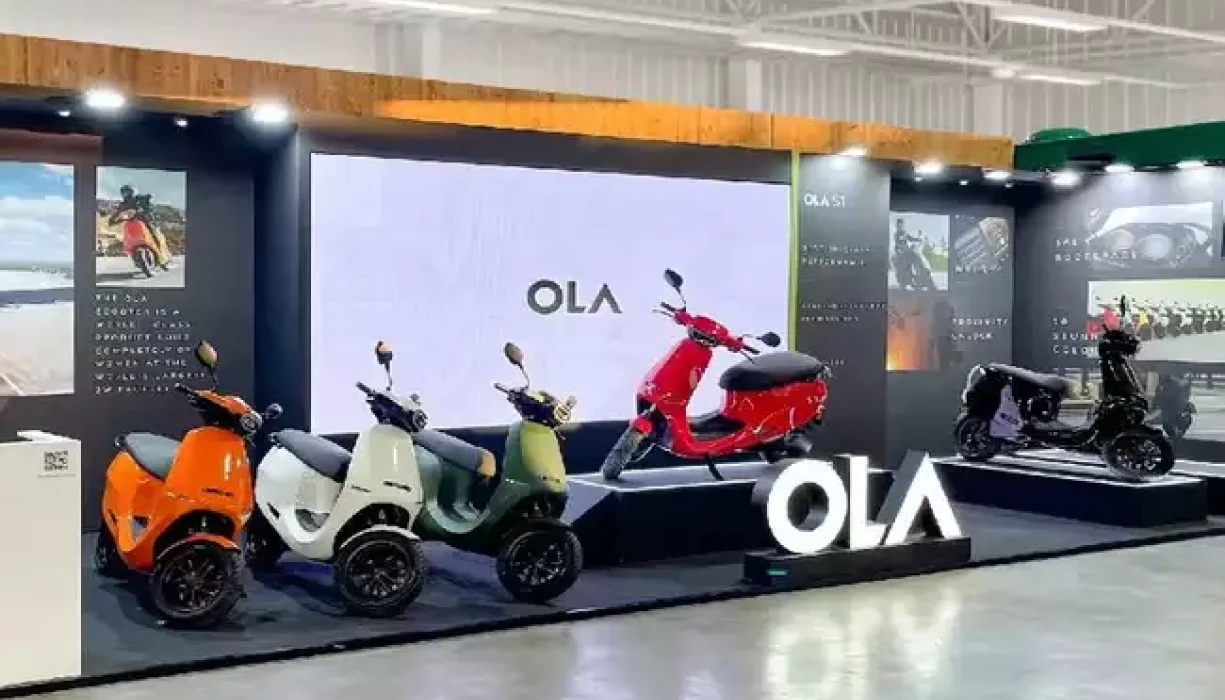TRENDING NEWS
Ola expands electric bike taxi service to Delhi, Hyderabad; plans India-wide scale-up

🎯 Ola is expanding its electric bike taxi service to Delhi and Hyderabad, with plans to scale up the offering across India by the end of the year. This is a significant move for Ola, as it could help the company to tap into the growing demand for electric vehicles in India.
🎯 Ola plans to deploy 10,000 electric two-wheelers in Delhi and Hyderabad in the next two months. This will make Ola the largest EV two-wheeler fleet operator in India.
🎯 Ola claims to have achieved more than 1.75 million rides and set up 200 charging stations in Bengaluru. This suggests that Ola's electric bike taxi service is already proving to be popular with customers.
Indian mobility giant Ola is hitting the gas pedal on its electric bike taxi service, expanding from its initial pilot in Bengaluru to two major cities – Delhi and Hyderabad. With plans to deploy a staggering 10,000 e-bikes in these cities within just two months, Ola aims to claim the title of India's largest electric two-wheeler fleet owner, and ultimately, revolutionize the country's urban mobility landscape.
This ambitious expansion comes on the heels of the service's impressive performance in Bengaluru, where it has already completed over 1.75 million rides and established 200 charging stations. The company remains committed to building an extensive charging network across all its operational markets, ensuring seamless e-bike accessibility for riders.
"Electrification is the key to unlocking affordability in the mobility space," declared Hemant Bakshi, CEO of Ola Mobility. He cites the pilot's success in proving its value proposition for riders (lower fares), drivers (higher earnings), and Ola itself (new revenue stream). This paves the way for mass deployment across India, paving the path for a wider e-bike taxi market.
Ola's vision goes beyond simply adding more e-bikes. According to Bakshi, electrification and premiumization are the cornerstones of the company's future growth. He even revealed that Ola's ride-hailing business turned profitable in FY23, based on EBITDA (Earnings Before Interest, Taxes, Depreciation, and Amortization). This marks a significant turnaround from the previous year's EBITDA loss of Rs 66 crore and signifies substantial financial progress.
The company's ambitious e-bike expansion plan and reported profitability paint a picture of a confident and forward-thinking Ola, ready to disrupt the Indian mobility scene with sustainable and affordable solutions. With a growing electric fleet and a commitment to premium services, Ola appears poised to claim a significant chunk of the future of urban transportation in India.
However, some questions remain unanswered. Ola's parent company, ANI Technologies, is yet to file its financial statements, leaving investors with an incomplete picture of the overall financial health. Additionally, the inter-party arrangements between Ola Cabs and its electric vehicle arm, Ola Electric, regarding scooter purchases, require further clarity.
Despite these uncertainties, Ola's e-bike taxi push marks a significant development in India's mobility landscape. This bold move holds the potential to not only transform urban commuting but also pave the way for a more sustainable and affordable future for transportation in the country.
Latest News

STARTUP-STORIES








